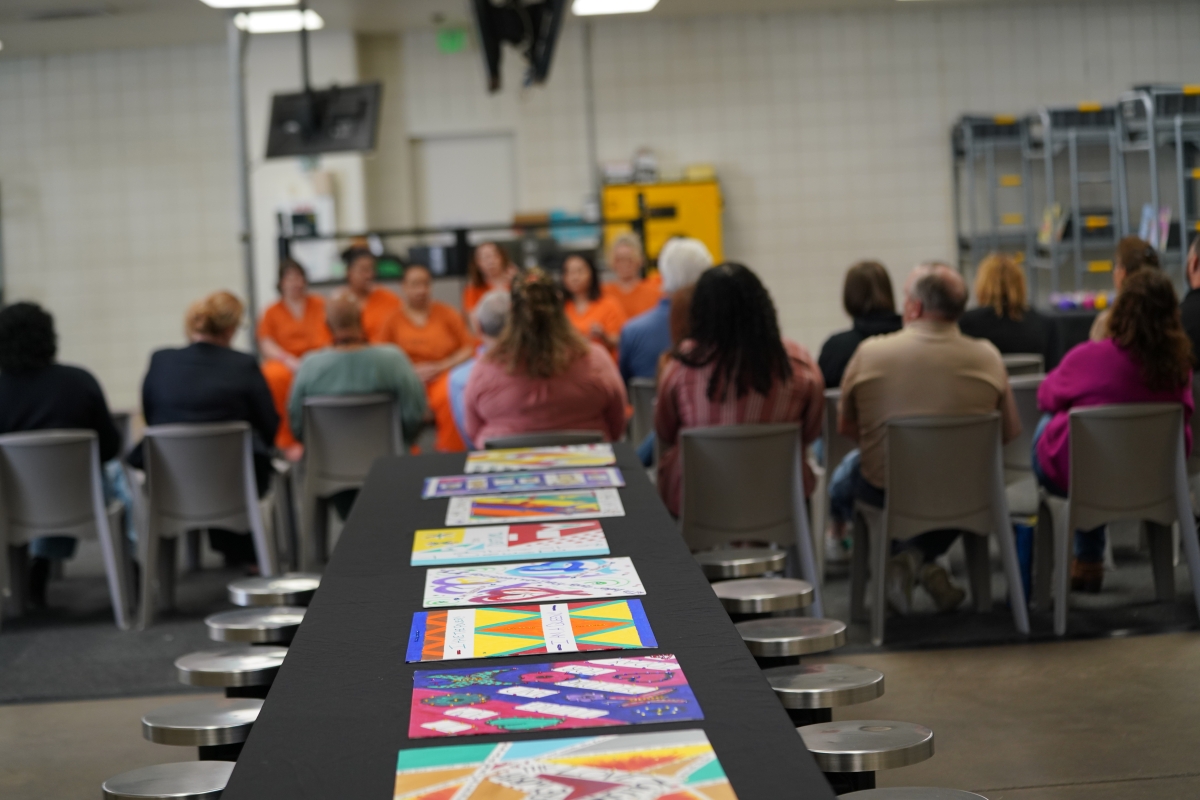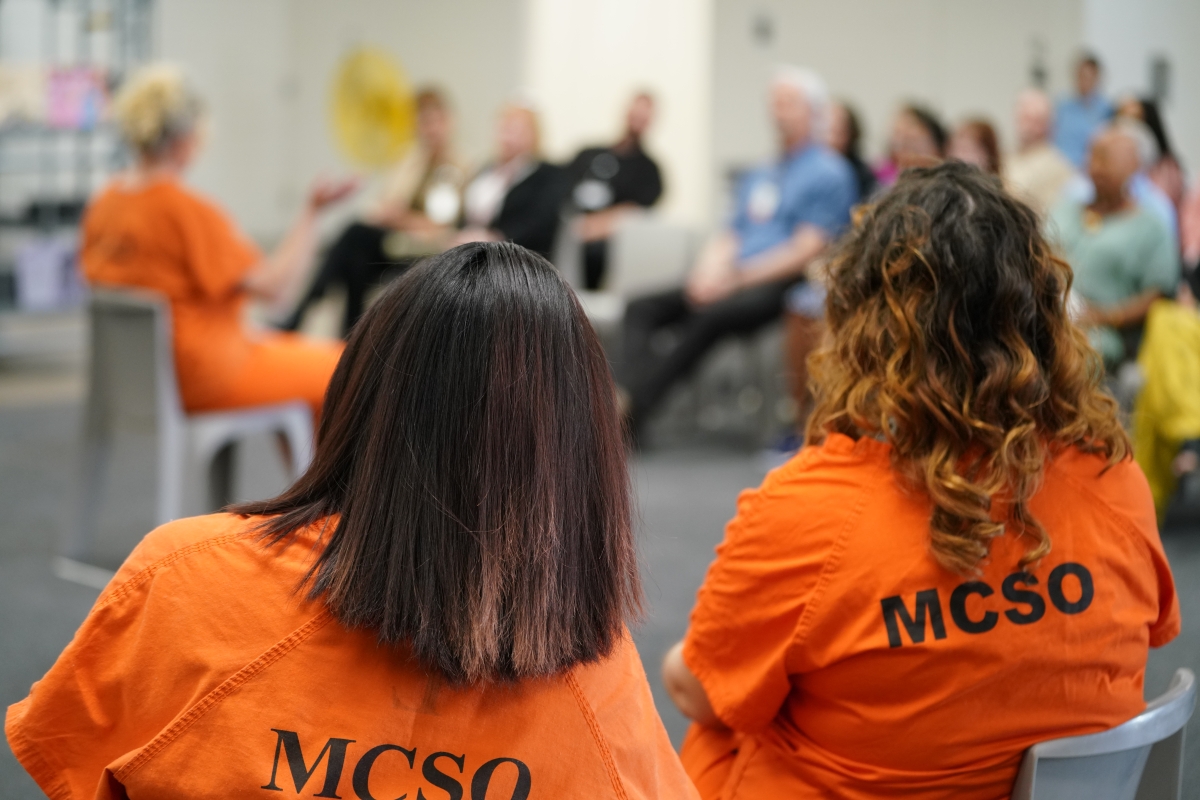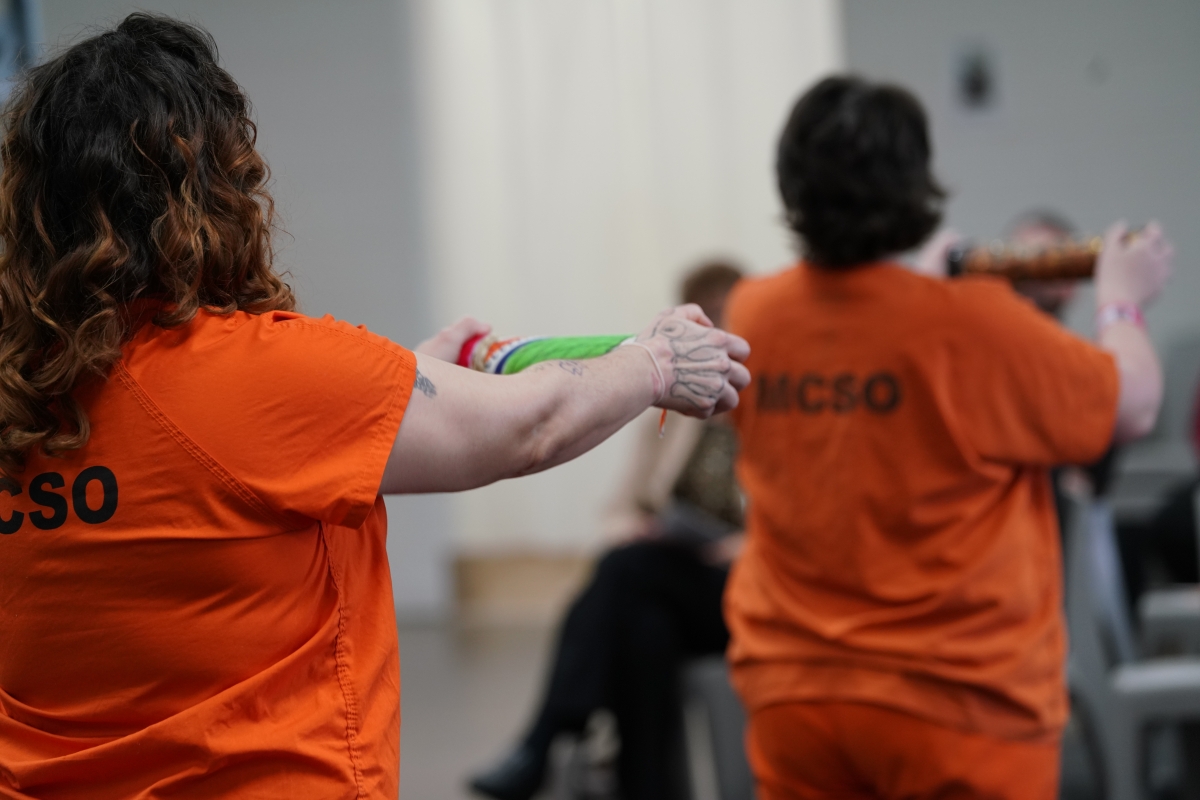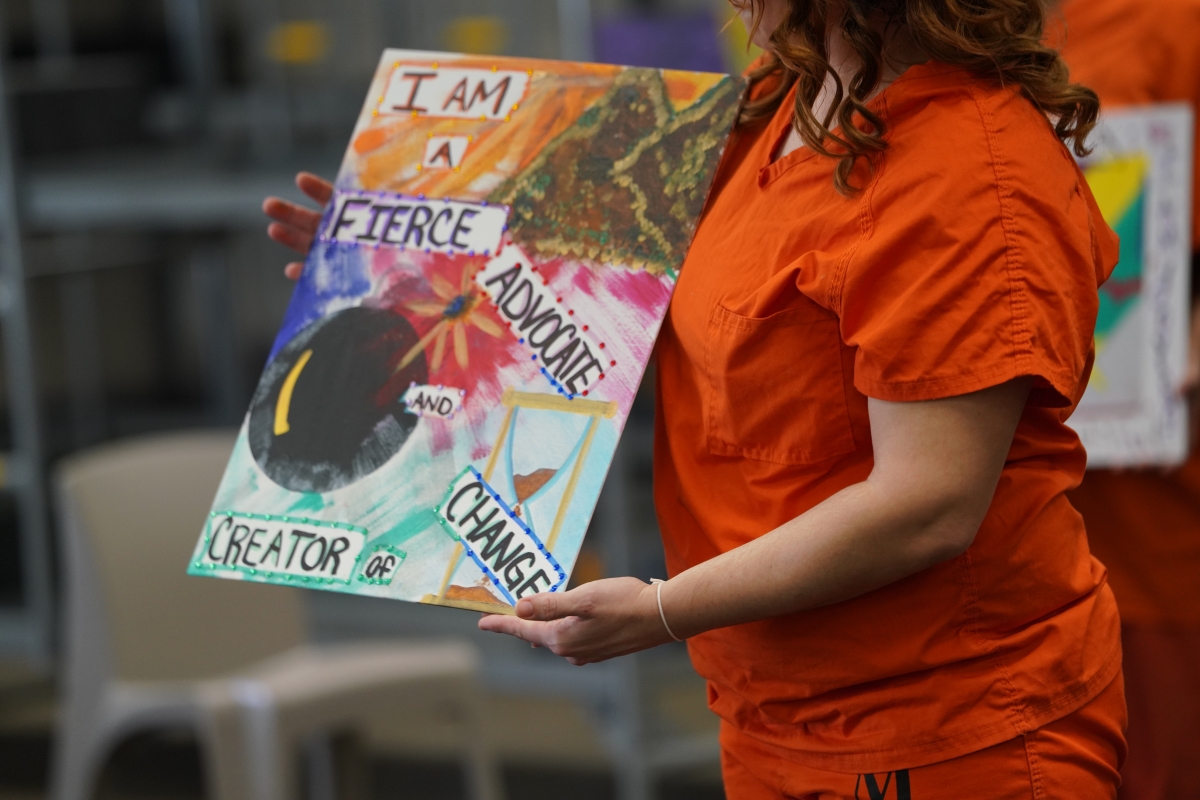ASU Gammage program brings the arts to incarcerated women
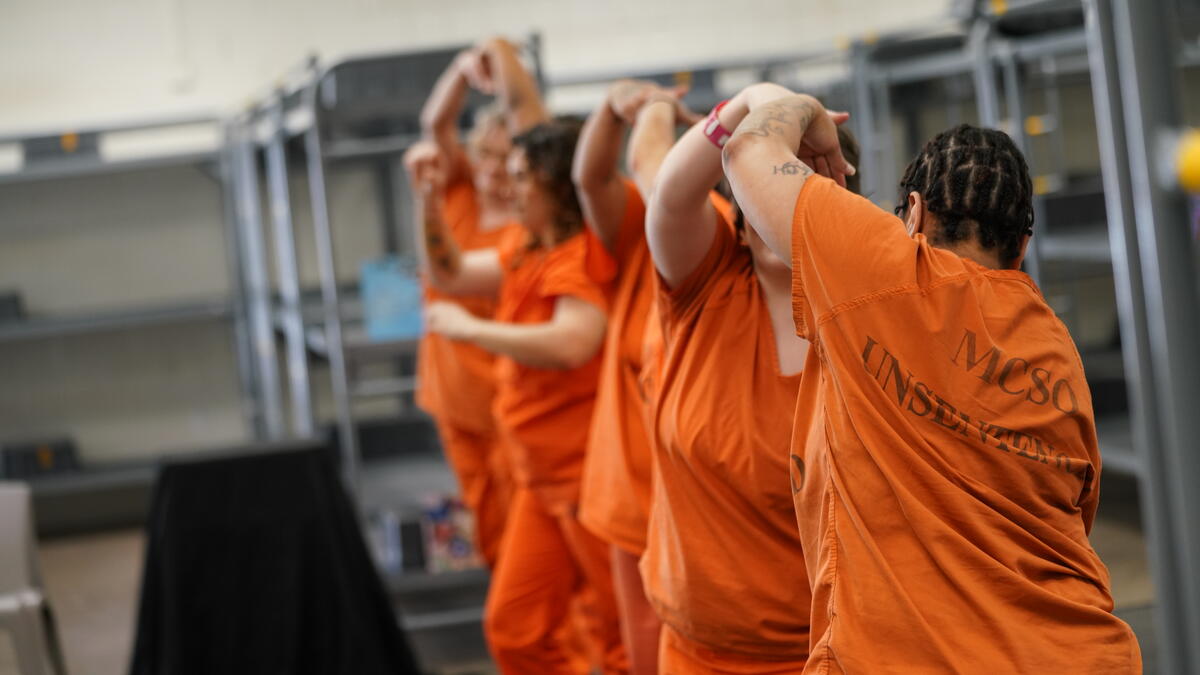
Incarcerated women come together during the final performance in front of jail staff and ASU Gammage donors. Photo courtesy of the MCSO Public Information Office
Laughter might not be the first thing you expect to hear when arriving at Maricopa County Estrella Jail, the all-women prison facility in south Phoenix.
But it was there on a recent afternoon, down a hallway labeled “CD TOWERS, EFGH DORMS,” as seven incarcerated women performed in front of 22 audience members — ranging from jail staff to ASU Gammage donors — as part of the ASU Gammage Journey Home program.
The room oscillated from laughter and joy to tears and heartache, and both the inmates and audience members found common ground in a rare moment of vulnerability shared amongst strangers.
The women could be your mother, your daughter, your wife, your girlfriend, your sister. They have names: Lindsey. Tatiana. Gabby. Lucy. Ebonee. Rachelle. April.
Journey Home is an intensive four-week program designed to raise the awareness and consciousness of incarcerated women through creative writing, expressive movement, storytelling and visual arts — empowering them to create a different life for themselves in the future.
“Journey Home is about ‘do not forget’, and it is also about ‘we’re waiting for you’,” said Colleen Jennings-Roggensack, executive director of ASU Gammage. “This is a powerful, important program about people, lives, community and community responsibility.”
The program is headed by three passionate women: Imani Muhammad, a mental health specialist; Fatimah Halim, executive director of Life Paradigms Inc.; and Teniqua Broughton, an administrator and movement specialist.
Broughton has been a part of Journey Home since its inception in 2001. At the time, Broughton was only a few months into her role on the ASU Gammage cultural participation team when she was approached by Jennings-Roggensack and Michael Reed, senior director of programs and organizational initiatives, to spearhead the program.
Over two decades later, Broughton continues to play a pivotal role in engaging with incarcerated women who participate in the program.
“Thank you for seeing the light in me,” she told Jennings-Roggensack and Reed during this year's final performance.
The tone set forth by the program could be found in its opening number, where an incarcerated woman began singing “Part of Your World” from "The Little Mermaid."
“I wanna be where the people are
I wanna see, wanna see 'em dancin' ...
Up where they walk, up where they run
Up where they stay all day in the sun
Wanderin' free, wish I could be
Part of that world”
There was no backing track to the song, just the woman's powerful voice reverberating on the walls. With each stanza, she gently grabbed the hand of a new inmate and walked them toward the makeshift stage until all seven of them stood tall and proud.
The next number involved the women utilizing thoughtfully handcrafted music shakers to create a unified beat. Each woman called out a word: "peace, hope, purpose." The words echoed the artwork showcased on either side of them, affirmations painted on canvas created by the women during a previous workshop.
"To believe in yourself and give it your all are important keys to success,” one read. “I am living and deciding for today,” read another.
The same woman who sang “Part of Your World” then took a seat and dived into a monologue about her life — she ended with, “It took me 46 years to find the man of my dreams, and he inspired me to chase after my dreams again.”
At the end of the performance, all seven women took a seat and pantomimed driving in a car. Destination: Scottsdale.
As they took their fictitious drive, it felt as though they were friends, each woman openly sharing what awaited them back home. None of them shared what landed them behind bars, only what they’re looking forward to in the future: Go back to school, start a nonprofit, chase theater, pick back up a business, start a family.
After the curtain call, the women gathered for an open dialogue with the audience.
“To the three women who helped us, you are my sisters,” one inmate said to Muhammad, Halim and Broughton. “You taught me that it’s OK to not be OK.”
Jennings-Roggensack told the women: “You always have a place at ASU Gammage.”
Journey Home 2024 is sponsored by Jenny Norton, Bob Ramsey and Union Pacific Foundation.
More Arts, humanities and education

Local traffic boxes get a colorful makeover
A team of Arizona State University students recently helped transform bland, beige traffic boxes in Chandler into colorful works of public art. “It’s amazing,” said ASU student Sarai…

2 ASU professors, alumnus named 2025 Guggenheim Fellows
Two Arizona State University professors and a university alumnus have been named 2025 Guggenheim Fellows.Regents Professor Sir Jonathan Bate, English Professor of Practice Larissa Fasthorse and…

No argument: ASU-led project improves high school students' writing skills
Students in the freshman English class at Phoenix Trevor G. Browne High School often pop the question to teacher Rocio Rivas.No, not that one.This one:“How is this going to help me?”When Rivas…


